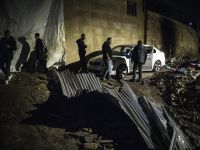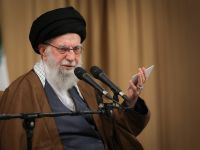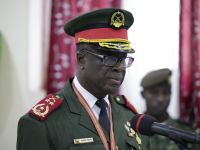Egypt’s President, Hosni Mubarak, on Sunday called on Israel to "change course" and seek a negotiated end to its conflict with the Palestinians, warning that injustice and despair were fuelling terrorism.
"I call on the leadership and the people of Israel to realize before it is too late that using force to impose security will only lead to more violence and bloodshed on both sides," he said during a speech broadcast on television.
"It is not too late for the people of Israel to change course," he added, speaking in a ceremony to mark the Holy Night, in which the Koran was revealed to Prophet Mohammed in the early seventh century AD.
President Mubarak urged Israel to "march with sincerity on the road to real peace and security, through direct political negotiations on a final settlement and on creating a Palestinian state that enjoys sovereignty," he said, according to AFP.
"The phenomenon of violence and terrorism that are spreading fast on the world level have nothing to do with the Islamic religion or to Arab belonging, " Mubarak further said.
"They are fuelled by injustice, frustration and despair caused by thorny political problems that the world community did not tackle with sufficient effort or tried to settle on a basis lacking justice and equality," he added.
Furthermore, Mubarak slammed what he described as "vexations" targeting Muslims and Arabs in the West since the September 11 attacks and the world's silence over accusations against Islam.
"Although the leaders of the world have repeated that the war on terror is not targeting Arabs or Muslims, we have seen a rising trend among (Western) thinkers and men of religion describing Islamic ideology and societies as hostile to democracy and modernism, and incompatible with human rights.
"What has made things worse is that these offences are being committed without anyone condemning them from outside the Muslim nation," he said.
Additionally, the Egyptian leader urged Arab and Islamic countries, Muslim men of religion and Cairo's Al-Azhar institution, one of the highest Islamic authorities, "to correct the distorted conception (about Islam) before it spreads wide in other societies." (Albawaba.com)
© 2002 Al Bawaba (www.albawaba.com)







